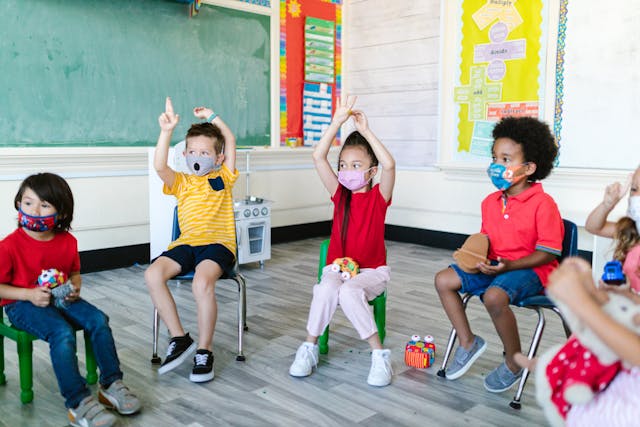Imagine a world where learning begins with laughter, where curiosity is celebrated, and where every child’s potential is nurtured from the very start. Welcome to the enchanting realm of early education, where preschool, pre-K, and junior kindergarten serve as the building blocks of a child’s academic journey. In this comprehensive guide, we embark on a voyage of discovery, unraveling the mysteries of early education and empowering parents to make informed decisions for their little ones.
In This Article
Preschool
Preschool, often hailed as the cornerstone of early education, is a vibrant playground of exploration and discovery. Designed for children ages 3 to 5, preschool offers a safe and stimulating environment where young learners can develop essential social, emotional, and cognitive skills. From finger painting to storytime circles, every activity in preschool is carefully crafted to ignite curiosity and foster a love for learning. With a focus on play-based learning, preschool lays the foundation for future academic success by nurturing creativity, independence, and problem-solving skills.
Pre-K (Pre-Kindergarten)
As children approach the cusp of formal schooling, they embark on a thrilling adventure known as pre-K, or pre-kindergarten. Catering to children ages 4 to 5, pre-K serves as a vital bridge between preschool and kindergarten, preparing young learners for the academic rigors that lie ahead. In pre-K, children delve deeper into foundational concepts such as literacy, numeracy, and critical thinking. Through hands-on activities, interactive games, and collaborative projects, pre-K fosters a sense of curiosity and confidence, equipping children with the skills they need to thrive in kindergarten and beyond.
Junior Kindergarten
For some children, the journey to kindergarten requires an extra year of preparation and support. Enter junior kindergarten, a gentle oasis where young learners can build confidence, develop social skills, and strengthen academic foundations. Junior kindergarten, typically designed for children who may benefit from an additional year of readiness, offers a nurturing environment where children can grow at their own pace. With a focus on phonics, math readiness, and social-emotional development, junior kindergarten provides a stepping stone to success for children who may not be quite ready for the demands of traditional kindergarten.
Differences Between Preschool, Pre-K, and Junior Kindergarten
While preschool, pre-K, and junior kindergarten share a common goal of preparing children for academic success, each option offers a unique blend of experiences and opportunities. Preschool focuses on socialization, creativity, and independence, laying the groundwork for future learning. Pre-K delves deeper into academic concepts, preparing children for the challenges of kindergarten through structured lessons and activities. Junior kindergarten, meanwhile, offers an additional year of preparation for children who may need extra support before entering kindergarten. By understanding the distinctions between these early education options, parents can make informed decisions that align with their child’s individual needs and developmental milestones.
Choosing the Right Early Education Option
As parents, navigating the maze of early education can feel daunting. How do you choose the right path for your child? The key lies in understanding your child’s unique strengths, interests, and developmental stage. Consider factors such as your child’s age, maturity level, and learning style. Take the time to visit different schools, talk to teachers, and observe classrooms in action. Trust your instincts and choose the option that feels like the best fit for your child. Remember, the goal is to provide a nurturing environment where your child can thrive and grow, setting the stage for a lifetime of learning and achievement.
Final Thoughts
As we journey through the enchanting world of early education, one thing becomes abundantly clear: the path to academic success begins with a single step. Whether you choose preschool, pre-K, or junior kindergarten, each option offers a gateway to endless possibilities and boundless potential. By understanding the nuances of early education and embracing the magic of learning, parents can pave the way for their children to soar to new heights of knowledge and discovery. Here’s to unlocking the ABCs of early education and laying the foundation for a future filled with joy, curiosity, and endless learning adventures.
Insights and information in this guide were sourced from reputable organizations such as the National Association for the Education of Young Children (NAEYC) and the American Academy of Pediatrics (AAP). Additionally, scholarly works by Manning (2019) and practical guides like Jones and Smith (2020) provided valuable perspectives. Dr. Emily Parker’s expertise also contributed significantly to the content, particularly her insights on preparing children for kindergarten (Parker, 2018).
Featured Image by RDNE Stock project
